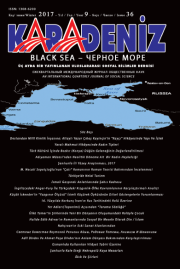A CONTRASTIVE ANALYSIS OF ENGLISH ANGER-FURY AND TURKISH KIZGINLIK-ÖFKE
A CONTRASTIVE ANALYSIS OF ENGLISH ANGER-FURY AND TURKISH KIZGINLIK-ÖFKE
Author(s): Hatice KaraaslanSubject(s): Language studies, Semantics, Comparative Linguistics, Cognitive linguistics
Published by: Kültür Ajans Tanıtım ve Organizasyon
Keywords: Natural Semantic Metalanguage (NSM); Universal Emotion Concepts; Cognitive Scenarios;
Summary/Abstract: Emotion concepts across different cultures and languages have been studied extensively. New research on emotion concepts can efficiently capture the “experience-near” and “universal” aspects of cultures and languages for the construction of a language-independent semantic metalanguage, namely the Natural Semantic Metalanguage (NSM) (Goddard, 1998). Wierzbicka (1999) claims that lexical discriminations in the area of emotions (as well as in other semantic fields) provide important clues to the speakers’ conceptualizations, and thus, a considerable amount of lexical data collection and of serious semantic analysis is needed before any universals in the area of emotion concepts can be proposed. Based on the classification of the cognitive scenarios for emotion terms in Wierzbicka (1999), the current study investigated one area of the emotion lexicon in English and Turkish, that is, a set of terms within the domain of “I don’t want things like this to happen”. It explored how these concepts relate to each other in terms of their cognitive scenarios intra-linguistically and whether their cognitive scenarios match within the domain of “I don’t want things like this to happen”. The study revealed the core meanings of target concepts show a high amount of correspondence, excluding cases of immediacy and intensity.
Journal: Karadeniz Uluslararası Bilimsel Dergi
- Issue Year: 2017
- Issue No: 36
- Page Range: 119-136
- Page Count: 18
- Language: English

